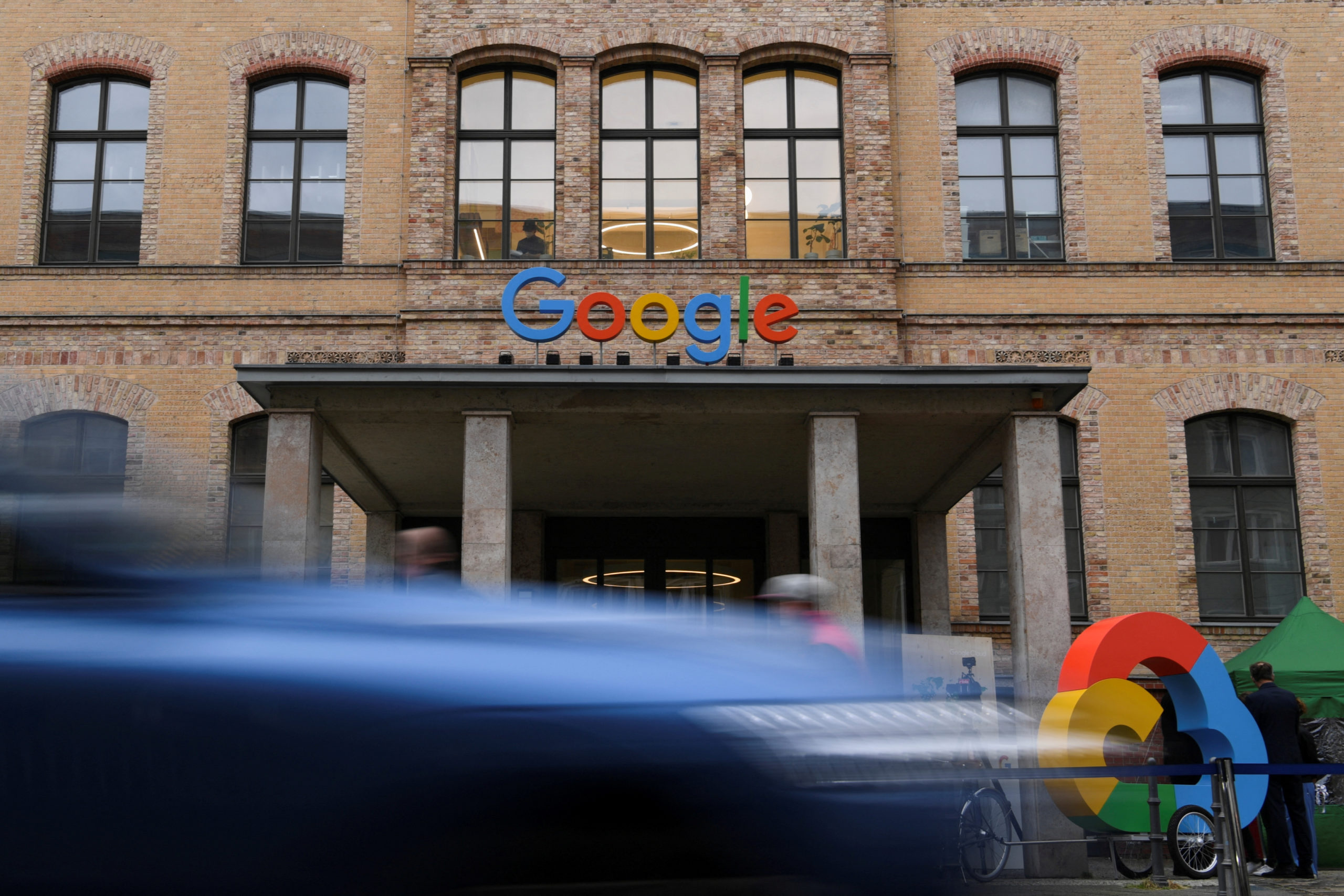
FILE PHOTO: A general view of the entrance of the Google office, ahead of presentation of the detailed investment plan for Germany, in Berlin, Germany, August 31, 2023. REUTERS/Annegret Hilse/File Photo
ALEXANDRIA, United States — In a dramatic turn of events, the U.S. government has taken a bold step to dismantle Google’s lucrative ad technology empire. This demand follows a court ruling affirming that the tech titan wields an illegal monopoly over the advertising sector.
The Government’s Case: A Call for Action
During a federal court hearing in Virginia, attorney Julia Tarver Wood emphasized the urgent need for action against Google, stating, “We have a defendant who has found ways to defy the law.” This assertion draws into question Google’s assurances that it plans to modify its monopolistic behavior. “Leaving a recidivist monopolist intact is not an appropriate solution,” she added emphatically.
A Pattern of Demand
This plea marks the second request from the government, which is also seeking to break up Google’s Chrome browser as part of a broader strategy to challenge the company’s dominance in the search engine market. Read more about the Chrome breakup case here.
The Allegations: Google’s Market Control
The government’s indictment revolves around Google’s control over the marketplace for publishing bannering ads, particularly affecting small news outlets and content creators. A significant trial phase is set for September 22, where both parties will present arguments to reshape the advertising landscape in light of the judge’s ruling.
Impacts on Publishers
The plaintiffs argue that an overwhelming majority of online platforms utilize Google’s ad software, effectively trapping publishers in Google’s ecosystem with little alternative for escaping its pricing structures. District Court Judge Leonie Brinkema previously affirmed this belief, declaring Google’s ad software monopolistic in nature, although she did partially dismiss claims related to advertising tools used by advertisers.
Future Implications
Discover more about Alphabet’s financial growth driven by AI.
Why a Breakup?
The government’s argument rests on the irrefutable need for Google to divest its ad publishing and exchange operations. “Behavioral remedies are not sufficient,” declared Tarver Wood, pointing out that Google has historically found new ways to re-establish dominance.
In response, Google’s legal counsel, Karen Dunn, suggested a binding commitment to enhance transparency by sharing essential information with both advertisers and publishers. Acknowledging underlying trust issues, Dunn indicated the company would be open to oversight if it would satisfy the court’s concerns. Despite this, Google maintains that calls for divestment are not justified, a point that Judge Brinkema swiftly refuted.
Concerns About Data Security
Google also raised alarms that dismantling its ad platforms could introduce significant data security risks for both advertisers and publishers. In a push for resolution, the judge urged both sides to seek mediation, indicating that a cooperative approach would be more beneficial than a lengthy trial process.
The Bigger Picture
The implications of this case extend far beyond Google’s ad revenue, which serves as the financial backbone for many of its free services, from Google Maps to Gmail. This situation reflects broader challenges within the digital advertising landscape, raising essential questions about monopoly and competition in the tech industry.
As Google’s immense wealth fuels advancements in artificial intelligence and other domains, the stakes in this legal battle are colossal, potentially reshaping the future of online advertising.






